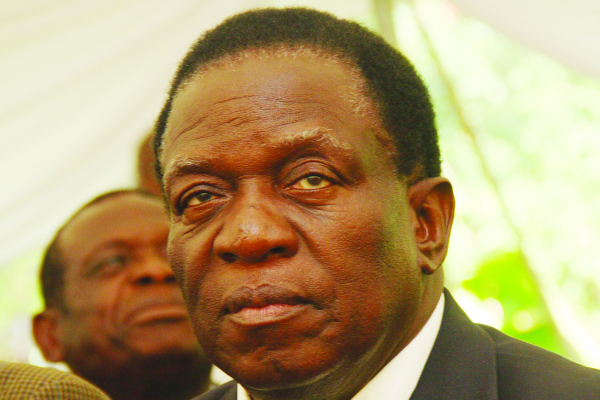
BY Wisdom Mdzungairi
SOUTHERN African leaders have made a passionate plea to the Convention on International Trade in Endangered Species of Wild Fauna and Flora (Cites) to keep its burgeoning elephant head on Appendix II to allow for trade in wildlife products and benefit communities living alongside wildlife conservancies.
Zimbabwe boasts of an elephant population of over 84 000, despite its national parks having a carrying capacity of 50 000 while neighbouring Botswana has around 120 000.
This came as Kenya has proposed the uplifting of the African elephant to Appendix I, which prohibits trade in wildlife at the 18th meeting of the Conference of the parties to the Cites (Cites COP 18) in Palexpo, Geneva, Switzerland.
Cites COP 18 was initially scheduled to take place in Colombo, Sri Lanka, from May 23 to June 3, 2019, but was postponed following bombings in that country. Appendix I includes species threatened with extinction. Trade in specimens of these species is permitted only in exceptional circumstances. Appendix II includes species not necessarily threatened with extinction, but in which trade must be controlled in order to avoid utilisation incompatible with their survival.
President Emmerson Mnangagwa made the appeal here yesterday saying that Kavango-Zambezi Transfrontier Park (Kaza) countries – Angola, Botswana, Namibia, Zambia and Zimbabwe’s position was to lobby for the elephants to remain on Appendix II.
“This also becomes the position of Sadc when we go for the Cites COP 18. We feel we must continue to remain on Appendix II so that we can trade in wildlife – elephants and rhino products. We feel we must remain on Appendix II. It is only logical so we can use our wildlife in a sustainable manner. It’s only logical for us to break the nine-year moratorium by giving us leeway to sell excess animals to those whose wildlife is extinct,” Mnangagwa said.
“Why should Cites block our efforts to sell our excess animals? I have a sense that the COP 18 will hear our appeal. We also have abundant buffalos. In this part of our region buffaloes carry the foot and mouth disease. So due to climate change, when there is no water in the parks they move to where people stay thereby spreading the disease. So we need the money to sink boreholes and keep these animals in their habitat, but benefiting the communities living alongside wildlife.”
- Chamisa under fire over US$120K donation
- Mavhunga puts DeMbare into Chibuku quarterfinals
- Pension funds bet on Cabora Bassa oilfields
- Councils defy govt fire tender directive
Keep Reading
Mnangagwa also said the country holds ivory and rhino horns stockpiles worth an estimated US$600 million, money which could sustain the country for over 20 years if the 183 parties to Cites, observers from intergovernmental and non-governmental organisations and the private sector, as well as representatives from rural communities vote in favour of the country.
While the open, porous nature of the Kaza countries’ shared borders benefits transboundary wildlife movements, the initiative also facilitates the movement of poachers, who can rapidly poach in one country and escape across the border.
Mnangagwa and his Zambian counterpart Edgar Lungu, Hage Geingob of Namibia and Mokweetsi Masisi of Botswana pledged to strengthen trans-boundary collaboration in investigating and prosecuting wildlife crime via increasing joint patrols and information-sharing mechanisms.
Questioning Kenya’s stance on whether communities should benefit from their wildlife resource or not, Mnangagwa said: “Kenya has chosen not to benefit from the wildlife that they have. They have burned ivory stockpiles on several occasions. But has that stopped poaching? Has that stopped corruption? Is that decision rational then? As Kaza, we’re saying no to poaching of wildlife at all in southern Africa. We are aware that some countries no longer have animals… we are prepared to sell them so that they can also grow their heads.”
Cites is an international agreement between governments whose aim is to ensure that international trade in specimens of wild animals and plants does not threaten their survival.
Mnangagwa said revenue generated from the sale of ivory stockpiles would be ploughed back to benefit communities and enhance the country’s capacity to look after its wildlife.











